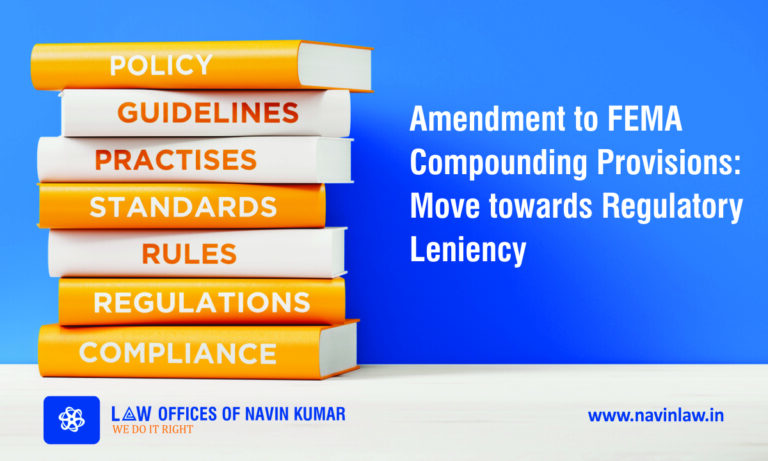Blog Detail
- home
- Blog Detail

- July 14, 2025
- admin
Amendment to FEMA compounding provisions: Move towards regulatory leniency
The advent of the 1991 economic reforms marked the beginning of globalization in the Indian economy, leading to the influx of numerous multinational companies. This surge in foreign transactions necessitated a structured legal framework, culminating in the enactment of the Foreign Exchange Management Act (FEMA), 1999. The Act aimed to facilitate external trade and payments and promote the orderly development and maintenance of India's foreign exchange market.
Under Section 3 of FEMA, the Reserve Bank of India (RBI) has been designated as the principal regulator to oversee foreign exchange matters not specifically governed by the Act. In a significant policy shift, the RBI—via Master Direction No. 04/2025-26 (Circular No. RBI/FED/2025-26/135)has introduced a more lenient approach to penalizing certain contraventions under FEMA. The update caps the compounding penalty at a maximum of INR 2 lakh, replacing the earlier range of 0.30% to 0.75% of the violation amount.
This policy update aligns with previous regulatory communications, including A.P. (DIR Series) Circular No. 17/2024-25 dated October 1, 2024, and Master Directions issued on April 22, 2025. The amendment is codified through a newly added clause (Para 5.4.II.vi.), which empowers the Compounding Authority to cap the penalty at INR 200,000 per contravention, subject to:The nature of the contravention,Exceptional circumstances or facts involved andBroader public interest considerations.
This cap applies specifically to Clause 5 of the Penalty Computation Matrix, which pertains to non-reporting contraventions such as:Annual Return on Foreign Liabilities and Assets (FLA), Annual Performance Reports (APR), Form FC-GPR/FC-TRS filings, External Commercial Borrowing (ECB) returns, Overseas Direct Investment (ODI) reporting etc.
Additionally, the amendment provides relief in cases involving contraventions such asNon-reinvestment of Liberalised Remittance Scheme (LRS) proceeds within 180 days (FEMA 9(R)/2015-RB, Regulation 7), Failure to export goods/services within one year of advance receipt (FEMA 23(R)/2015-RB, Regulation 15), Gifting of high-value shares without RBI approval.
However, exclusions under Rule 4(2) and Rule 9 of the 2024 Rules will still apply. The RBI has also issued instructions to Authorized Dealer Category-I Banks and other Authorized Banks to incorporate and act upon these new guidelines. By standardizing and capping the maximum penalty, the new policy offers relief to individuals and companies engaged in high-value transactions, thereby encouraging greater voluntary compliances. The RBI's progressive approach signals a significant step towards transforming India's global image from a red-tape-heavy regime to a business-friendly, investment-attractive environment.
Ashish Shukla
Associate

